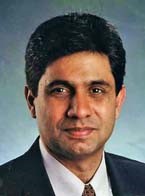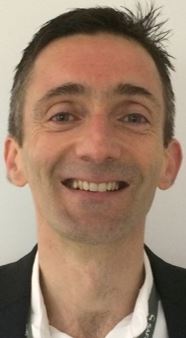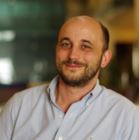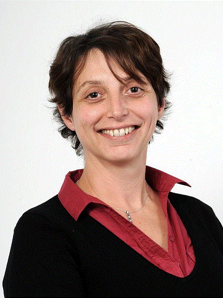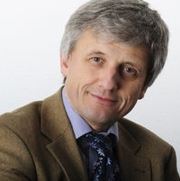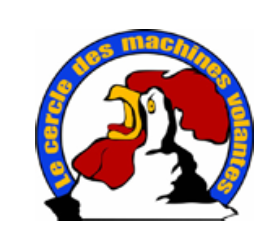
|
|
|
Plenary LecturesPlenary Lectures Nine plenary lectures are planned during ACAM2018. Eight alternating industrial/academic plenary lectures are programmed during the three days and one lecture preceding the technical visit. Each plenary lecture has a duration of 45 min including Q&A, except the last one that has a duration of 30min.
Dr.-Ing. Peter Wierach is a Deputy Director at the Institute of Composite Structures and Adaptive Systems since 2012 and, within the latter, a Head of the Department of Multifunctional Materials since 2009. The same year, he got his PhD in Smart-Structures Technology on “Development of Piezocomposites for Adaptive Systems” from the Technical University of Braunschweig (Germany). In parallel to his professional activity, Dr. Wiereach has a University teaching position for material technology at a private University of Applied Science in Göttingen since 2007. He was also a Deputy Head of the Adaptive System Department of the above institute from 2003 to 2008. Dr. Wierach is a Scientist and project manager at the Institute of Composite Structures and Adaptive Systems of the German Aerospace Center (DLR) - Braunschweig since 1998. His research interests are in multifunctional materials and material systems, actuators and sensors development, characterization of piezocomposites, manufacturing technologies for piezocomposites, morphing structures, active helicopter technologies, Active Twist Blade (ATB), active noise and vibration control. Integrated Smart and Multifunctional Materials for Aircrafts
Afzal Suleman, Canada Research Chair (Tier1) and Professor, University of Victoria (2000-Present). BSc (Honours) and MSc in Aeronautical Engineering from Imperial College, U. London, UK. PhD in Space Dynamics (1992) from the University of British Columbia. International Space University, Advanced Space Studies Program, Japan, 1992. National Academy of Sciences/National Research Council Fellow, US Air Force Research Labs (1992-1994). Assistant Professor, Technical University of Lisbon (1995-2000). National Delegate, United Nations Committee on Peaceful Uses of Outer Space (UN-COPUOS) and NATO Research and Technology Organization Applied Vehicle Technology (AVT-RTO). Associate Fellow of the American Institute of Aeronautics and Astronautics, Member of the Canadian Armed Forces Defence Advisory Board. Member of the Canadian Government Space Advisory Board. Fellow Royal Aeronautical Society. Fellow Canadian Academy of Engineers. Fellow of the Royal Academy of Sciences of Lisbon. Associate Fellow AIAA. Associate VP Research (2009-2010), and Associate Dean Research (2005-2009) at University of Victoria. International leader in the fields of Aeronautics and Astronautics, and Director of UVic’s Centre for Aerospace Research. Research and development in the area of Unmanned Air Systems, Aircraft Structures, Aeroelasticity, Aircraft Design and Advanced Composites
After 2 years at Airbus Hamburg, Germany, as design engineer for A380 program, he went back to France and became technical project manager at MS Composites : he was in charge of Industrialization of composites workpackages (fuselage, engines, fairings..). He joined the composites R&T team at Stelia Aerospace in 2016 and is now Head of R&T composites manufacturing activities.
From ATR to A350: How composites have revolutionized the aeronautic industry?
Dr. Nicolas Carrere is expert on mechanics of composite materials in SAFRAN Tech since 2016. He has defended his PhD thesis in 2001 on the multiscale analysis of metallic composite materials. He was research engineer at ONERA until 2011. In 2008, he has defended is habilitation for research management (HDR). He moved to Ecole Nationale des Siences et Technique Avancées (ENSTA) at Bretagne as the head of an industrial chair on adhesively bonded joints for renewable marine energy systems until 2016. Since then, he animates the thematic “mechanics of composite materials” at SAFRAN Tech/Composites. Development of tools for the study of mechanics of composite materials
Gilles Lubineau is a Professor of Mechanical Engineering and principal investigator for COHMAS (Composite & Heterogeneous Materials Analysis & Simulation), an integrated environment for composite engineering that he created in 2009 when joining KAUST. He is also chair of the Faculty of Mechanical Engineering. Before joining KAUST, Prof. Lubineau was a faculty member at the École Normale Supérieure of Cachan, France, from which he earned a PhD degree in Mechanical Engineering & a research habilitation in Mechanics in 2008. He also served as a visiting researcher at UC-Berkeley & external faculty member at the École Polytechnique. He received the Daniel Valentin Award for best innovative works related to the field of composite materials in 2004. He is member of various Editorial boards, including the International Journal of Damage Mechanics. Over his career, Pr. Lubineau has worked on both fundamental and applied research with many companies related to non-metallic materials. He wrote more than 140 peer review papers.
Dr.-Ing. Anne Denquin is the Deputy Director of the Materials and Structures Department of ONERA since 2017 and was formerly (2011 to 2017) the Head of the Materials and Microstructure Unit dedicated to metallic Materials for Aeronautical applications. She got her PhD in 1994 on Phase transformations in γ-TiAl alloys and did a Post-Doc at University of Birmingham on the same research field before spending 4 years at SAFRAN, Vernon, France, as a research engineer on mechanical and tribological behavior of materials for aerospace applications. Metallic materials for aerospace applications: state-of-the-art and perspectives
Prof. Dr.-Ing. Christian Boller studied civil engineering at the Technical University of Darmstadt (Germany) and received an engineering doctoral degree in the field of material mechanics and fatigue life evaluation from the same institution in 1987. Having been active in the field of materials technology at Battelle-Europe in Frankfurt (Germany) for a few years, he moved into the aircraft development division of MBB Military Aircraft (today Airbus) in 1990, where he became the chief engineer aero-structures in 1998. In 2003, he was appointed the chair of 'Smart Structural Design' at the University of Sheffield (UK). Since 2008, he holds the chair for Non-Destructive Testing and Quality Assurance (LZfPQ) at Saarland University and a directorship at Fraunhofer Institute for Nondestructive Testing (IZFP). He is also the director of the NDT master course programme at Dresden International University (DIU) since 2013. In 2014, he was appointed a visiting professorship at the School of Aeronautics of Nanjing University of Aeronautics and Astronautics (NUAA) in Nanjing (China). He is the author and coauthor of around 250 publications including 'Materials Data for Cyclic Loading' (1987) and 'Encyclopedia on Structural Health Monitoring' (2008) both a 5-volume compendium each. He is also one of the central organizers of the 'European Workshop on Structural Health Monitoring' and the 'Symposium on NDT in Aerospace'. Progress and constraints of structural health monitoring in aviation
Dr. Michael Kyriakopoulos serves the European Commission as senior Research Policy and Programme Officer in the Aviation Unit of DG Research and Innovation. Michael has 30 years of experience in aeronautics research. He is a Mechanical and Aeronautical Engineer with his diploma, PhD and post-Doc in computational mechanics. Prior to the European Commission, Michael worked for the National Aerospace Laboratory in the Netherlands, the Westinghouse Company and the Institute for Advanced Materials of the Joint Research Centre. He has 40+ scientific publications and contributed to industrial R&D projects in Aerospace and Defence (e.g. composite aerostructures, impact dynamics, thermal barrier coatings, manufacturing processes as well as development of CDM, FSI, MDO and certification methodologies).
30 years of European Union Aeronautics research on Materials and Structures Aviation history enthusiast since boyhood, Frédérick Collinot is a graduate of the Air France maintenance training school at Villegénis and trained as a qualified Flight Instructor at the Ecole Nationale de l’Aviation Civile. In 2007 he founded the Cercle des Machines Volantes, an association devoted to the preservation of France’s aeronautical heritage for the period before 1940. The association, now based in its own premises on the grass airfield at Margny-lès-Compiègne, focuses on the accurate restoration or reproduction of period aircraft as closely as possible to their original as new condition. Roots of the Future – Materials, techniques and the preservation of France’s aeronautical heritage |
| Online user: 1 | RSS Feed |

|

